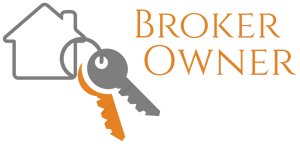Women in Housing

Let’s be honest, the housing and mortgage industries are not diverse. As women it is important that we strive and even fight for positions or leadership, and use those positions to guide others. Female leadership is becoming more widespread. Women are constantly shaping the future of housing while supporting individual growth and advancement for all in the industry.
The following pages are unedited responses from women in leadership as they share their thoughts on what it means to have work-life balance and what they would tell their 20-year-old selves about working, and participating, in the housing market.
Each woman answers two questions:
Question 1: We often hear the term “work-life balance” when it comes to professional women. What does work-life balance mean for you and what tips can you provide to other women on how to maintain it?
Question 2: Hindsight is always 20-20 as they say. If you could go back and tell your 20-year-old self something about both working in housing and participating in the housing market, what would you say and why?
Meghan Bartholomew
Senior Vice President of Credit and Counterparty Risk Management
Years in the Housing Industry: 18
Answer 1: I have been fortunate to maintain a solid work-life balance. I have learned that there are personal priorities that may conflict with my work schedule, but instead of worrying that “I should be at work right now,” I find time before or after business hours to catch up on the work.
During my career, I have been transparent with my various managers when I need time for my family. I am very confident that I am a better employee and leader when I make my personal life a priority too. We all strive for long and successful careers, so I think it’s important to constantly seek the appropriate balance and try to avoid getting too worried about recent or short-term imbalances. Instead, just try to rebalance.
Answer 2: I would tell my 20-year-old self the housing market is complex and influenced by so many factors, and we should be constantly listening to our customers, colleagues, competitors and housing experts to ensure that we are considering new risks, as well as ensuring that we have the appropriate controls in play to manage through the next cycle.
I would tell myself to cultivate my business relationships and seek networking opportunities. Sometimes it can be hard because we can be heads down with our day-to-day work, but I have found tremendous value in talking through various issues with business contacts. They have offered an informed and different perspective that directly benefits my approach or my thinking on that topic.
Katie Brewer
Senior Vice President of Real Estate Services Operations
Years in the Housing Industry: 16
Answer 1: Work-life balance is tough, but the key is focusing on your happiness. For me, this means spending adequate time with family and focusing on my health. I try to schedule travel around major activities for my kids and, if not possible, ensure that I use technology, videos and FaceTime, to stay connected. I volunteer at school when possible, help with homework and always put them to bed when not traveling.
From a health perspective, getting in a workout is important to my well-being and feeling good. I often get creative with my workout schedule and activities to fit it in while traveling. The best advice I have is to find what makes you happy and focus on doing a few things daily that promote that. If you’re not happy, you can’t be successful at work or in life.
Answer 2: When I started my career in mortgage servicing, I viewed it as my first job out of college, I but didn’t expect it to become my career.
As I worked my way through collections, loss mitigation, management and other areas, I learned all that the housing industry had to offer. With the many facets within the industry, there are tremendous opportunities in various fields, and all contribute to the larger housing ecosystem. I would tell myself to get involved, network, build relationships, go outside of your comfort zone and stretch yourself. While it didn’t seem important at the time, my later career has been focused on industry involvement and investing in business relationships, which has helped me learn, develop and grow as a leader.
Aviva Bush
Senior Vice President of Radian Valuation Services
Years in the Housing Industry:25
Answer 1: To have a work-life balance, I believe, I need to be realistic about what I can and cannot do. Working toward perfection at home or work creates unrealistic outcomes and undue pressure on myself and those around me. To me, the balance needs to be a give and take – more like a see-saw.
I think it’s important to do something you like. We live busy lives and it’s easier to put your energy into something you like doing. If you don’t like your career, it will be hard to have the motivation and energy to succeed. It’s essential to find some quiet time for yourself to read, exercise or do other things you enjoy.
One of the most important things I do to keep balance is not read emails prior to going to bed; you work all day and perhaps even when you get home, but I do not work while sleeping. One bad email can keep you up all night.
Answer 2: I would tell my 20-year-old self to take risks, embrace the unknown and don’t worry about failure or what I don’t know. I would encourage myself to have confidence to go beyond my comfort zone and take on a challenge which advances your career, even if I am petrified. Then I would remind myself that new challenges bring personal growth.
There are many talented women in the housing industry. You should find a network of women and use them to solicit advice, guidance, share ideas and struggles. I think we underestimate the value of that.
Jill Cadwell

SVP, Settlement Services Operations
Years in the Housing Industry: 31
Answer 1: I set my career and personal goals together. My goals include work, family and time for myself by doing something that brings me peace and happiness. Last year, I set a goal that I would be there to watch my son play hockey. I told my leaders it was important to me. His games were an appointment on my work calendar. I protected this time from business and travel conflicts.
Did I make it to every game last hockey season? No, but that was okay because I made it to most of his games. I felt contentment, and not guilt. As women, we tend to feel guilty about way too many things. Give yourselves a break from time to time, knowing you are doing the best you can to maintain that precious balance.
Answer 2: I would tell my 20-year-old self that the housing market is a great place to build a long-lasting career. You should quickly find a great leader and learn from them. You will need to embrace change as our market place is ever changing. Utilize technology wherever possible as it will increase your team’s efficiency and improve your customer’s experience. Finally, be a supportive influence when interacting with other women colleagues.
It’s great to compete, but we should be doing it with the thought of lifting one another up, not tearing each other down.
Angela Capone
Senior Vice President of Field Sales
Years in the Housing Industry: 35
Answer 1: Work-life balance is a critical question for everyone. Setting a balance becomes a group decision when more people, spouses and children become involved. The balance is a constant evolution as lives develop and jobs change.
The first step is to understand personally what you as an individual want out of life. It is important to establish a point of beginning for what you individually want to achieve in life no matter how that is defined. More than likely what one desires out of life will change but there needs to be an apparent point of beginning.
More importantly, there is nothing wrong with not aspiring to higher-level positions. The important thing is to understand your personal needs and desires and develop a path for achieving your goals as an individual and as a family.
Answer 2: I would tell my 20-year-old self, first listen to those who really care about you and want you to be successful. Look for a mentor, one that you admire, respect and can relate too.
After food, housing is one of the fundamental human needs. Housing, like life, has become much more complicated. These days, housing is not a single industry but a conglomeration of industries. Neither housing industry employees nor homebuyers know all the answers. Working together, industry employees can earn a good living and feel good about working to bring about home ownership for many families.
Betty Cohen
Senior Vice President of Enterprise Risk Management
Years in the Housing Industry: 28
Answer 1: Work-life balance means consciously deciding to make time for myself and my family, while trying to achieve success in my career. It means working remotely so that I can attend a family event, taking time off to go hiking, or sometimes even leaving work at a more reasonable hour in order to meet a friend for dinner. However, the balance can be difficult to maintain. It is not always easy to take a break, even when I know that doing so will make me more productive when I return to work.
My advice is not to be too hard on yourself – do the best that you can to attend the family occasions that really matter but understand that sometimes you may miss certain events due to work commitments.
Answer 2: The housing industry will provide many opportunities for growth. Develop relationships and find mentors who recognize your potential and can help you to navigate. Be thoughtful about your career choices but realize that your path could take unexpected twists and turns that will lead to exciting opportunities for you to expand your knowledge and develop new skills.
Don’t be afraid to fail – trust your ability to do the work and ask for help when needed. Don’t compromise your integrity or values even when it may be difficult to stand strong. The housing market is cyclical and there will be challenging times, but if you work hard, you will have a fulfilling career in an industry where women can thrive.
Zoe Devaney
Senior Vice President of Marketing and Customer Experience
Years in the Housing Industry: 25
Answer 1: I discovered many years ago that managing personal and work responsibilities can often resemble a see-saw on a daily basis but can be balanced over time. Depending on life events or critical work initiatives, one will take priority over the other. The key for me was identifying those life events, activities and commitments that had to remain top priority and ensuring that they received the attention needed.
Creating a strong, collaborative team environment, forging partnerships with other functional areas and providing opportunities to others will not only help achieve goals and meet tight deadlines but also help minimize the see-saw impact. Making time for your own development, health and professional growth is critical and will also assist in creating perspective and balance in your life.
Answer 2: I would tell my 20-year-old self the housing industry is complex, dynamic and provides a multitude of opportunities for a very interesting career with significant growth potential. Explore as many facets as possible across the home buying and lending spectrums. Learn the business. Take risks by seeking job opportunities in a variety of functional areas that stretch your capabilities and growth potential making you more valuable in every role.
Research and find the most relevant industry associations and then join committees and working groups that pique your interest taking leadership roles, if possible. Find a mentor, seek out advocates and forge strong relationships with co-workers, clients and other industry participants.
Nadia Girardot
Senior Vice President of Chief Audit Executive
Years in the Housing Industry: 4
Answer 1: I like to think about priorities instead of work-life balance. It is all about understanding what feeds my soul and my body, and knowing what my focus is in the season of my life. Giving my best is my goal and making decisions based on priorities is what helps me find peace without feeling frustrated.
Be comfortable saying no to things that are not on the priority list. I also recommend reassessing the priority list regularly. I like taking quick breaks every three to four months to dissconnet so that I can shake any signs of early burn out.
Answer 2: In the housing industry, like in any other industry, it is very helpful to reach out to resources that provide you with adequate and timely information. I have found those resources in the network of professionals, including both current and former co-workers, that I have developed over time but also in periodic on-line newsletters, magazines and other publications.
Suzanne Powell
Senior Vice President of Digital Client Experience
Years in the Housing Industry: 26
Answer 1: To me work-life balance means balance and not perfection. Early in my career, I constantly felt guilty and was my own worst critic. Over time, I learned that in order for there to be balance, I had to accept that time lost on one meant I needed to appreciate the time spent on the other. I had to accept that some days my balance would be better than others. This realization alone helped me achieve it more times than not.
Answer 2:I would tell my 20-year-old self that you are on the right track career wise. Working in housing is fun and important. Growing up I always asked “Why?” I still do today! “Why did this happen? Why is this important to customers? Why can’t this be easier?” Asking those questions and truly being interested in the answers is what has allowed me to continue to do new and exciting things.
Susan Kropp
Senior Vice President of Client Advocacy
Years in the Housing Industry: 38
Answer 1: I’d suggest that the term should be “life-work balance.” Everyone’s lives and positions are different but it’s important early on to establish some boundaries to ensure that you find the balance that works best for you. For example, for several years I worked out of state and commuted home on weekends. During that time, I focused my weekdays/nights almost exclusively on work but did my best to “turn off” work over the weekends when I was home.
Answer 2: I would tell my 20-year-old self to focus on five priorities.
1. Continuous Education – learn as much as you possibly can about your company, your position and the industry. Understand how your position fits into the bigger picture.
2. Find mentors – important on many levels, career growth, networking, knowledge, etc.
3. Ask questions – don’t be afraid to speak up if there are things that don’t make sense or that you don’t understand – knowledge is power.
4. Advocate for yourself – promote your accomplishments, seek out growth opportunities, seek candid feedback.
5. Get involved – participate in trade associations; company initiatives and anything else that can help you to grow within the industry.
Emily Riley
Senior Vice President of Corporate Communications and Investor Relations
Years in the Housing Industry: 20
Answer 1: First, I believe the definition can be different for everyone, which may seem obvious. For me, work-life balance means feeling a sense of accomplishment and fulfillment at work, at home and everywhere in between. If one area of your life is a success yet another is challenging, you can feel a consistent internal struggle which may lead to a feeling of failure. The goal, I believe, is to take time for all the important things in your life, while also taking equally important time to enjoy life’s moments, both personal and professional.
Answer 2: Share your ideas. Don’t hesitate to speak up and be heard. Stop apologizing! No idea is too small or insignificant and if you voice your opinion you may be surprised by how much it’s valued. You may also be disappointed that your idea isn’t a win, but that’s not a failure, it’s a learning experience. Don’t wait for someone to ask what you think because they may not – take a chance!
Donna Ross
SVP, Chief Information Security Officer
Years in the Housing Industry: 20
Answer 1: Work-life balance is simply creating balance between work life and other life roles to ensure all are valued equally. As a chief information security officer, work-life balance is especially important given the stress that can be associated with protecting the company and the information entrusted to us by the various stakeholders. I make time for personal wellness and exercise. I hike, kayak, spend time with friends and family.
We need to be role models – ensure work-life balance is a part of our personal priorities and lead by example. Use flexibility when warranted and where possible, including work from home, alternative schedules, part time roles or job sharing.
For my team that means a quiet work area, use of IP telephony, chat and collaboration tools as well as a shared team calendar that shows schedule and location.
Answer 2: As a person working in housing, I’d say that the past – financial crisis, recession, etc. – is the best predictor of the future. Look back at where we were and learn from it. Don’t repeat the errors of the past. The housing market will recover.
Secondly, technology can be a market disruptor, especially as markets start to recover. Lastly, pay attention to key risk indicators. As a homeowner and consumer of real estate services, be an educated consumer. Consider your risk tolerance. Protect yourself with a diversified portfolio of assets.
Anita Scott
Senior Vice President of Human Resources
Years in the Housing Industry: 19
Answer 1: Those three words often do not have a common definition or even understanding. For me, it means being true to myself in managing, prioritizing and executing on my personal and professional goals. Goals could mean making commitments to others, accepting invites outside of work, making sure I am home to eat dinner with the family or delivering on a work project. I learned early on, burnout or imbalance at work and/or at home leads to negative mindset and often leads to disengagement overall. I learned to create structure and discipline, knowing what my limits are, take time to re-charge and learn how to work smarter, versus working longer hours. I developed a mantra for myself – Family First. If I’m not balanced at home, it’s hard to be balanced at work! Burnout can look different to different people.
Answer 2: I would tell myself to stay hungry and have a thirst for learning and networking, ask questions, be curious and strive for growth. Asking questions not only helps you, but it tells others that you are interested in learning. Networking is a scary word to some but in hindsight it is an activity that serves you well at 20, 30, 40 or more. Networking can be simple or strategic, no matter how you approach it. Meeting and staying connected to a diverse group of friends, colleagues and associates is a treasure chest of resources.
Colleen Teears
Senior Vice President of Corporate Real Estate & Facilities Management
Years in the Housing Industry: 38
Answer 1: Work-life balance is finding that specific way for you to not only be engaged at work but equally as engaged in your life outside of work. No single part of your life should define you. I believe it’s a combination of the two that makes you who you are and provides the best balance.
As women, we often think we need to be the perfect employee, manager, executive, trainer, mentor, mother, wife, daughter and friend. When we cannot be everything to everybody, we feel that “overload” moment when life and work collide. We feel inadequate.
For me personally, I have learned over the years that as long as I give my best to whatever is at hand and live and be present in each moment, then the balance is good. When I am spending time with my family and friends, I make a conscious decision to focus solely on the people surrounding me. When everything is in balance, I am happier, calmer and more productive in both work and play.
Answer 2: I would tell myself, “You are young and have many opportunities in front of you. Try them all! See what fits! Never say no to opportunities! Work hard! Do the grunt work, not just the glory work.”
You will come across many obstacles in your career. It is not the obstacles that will show what you are made of but how you handle them that will define you.
Finally, I shared the following with my daughters when they were first embarking on their careers – Your first job out of college will most likely not be your last. However, do not, under any circumstances, give it less than your all or less than one year. Gut that first year out because it is a learning experience and giving it less than one year will only short-change you.
“Our greatest weakness lies in giving up. The most certain way to succeed is always to try just one more time,” Thomas Edison once said.
Sam Zaki
Senior Vice President of National Sales and Strategy Manager Title and Valuation
Years in the Housing Industry: 28
Answer 1: Work-life balance for me as working wife and mother comes down to time management. If I wasn’t traveling for business, I made sure that we sat down as a family for dinner whenever possible. My husband and I always put our children and their activities first. He and I would go to dinner once or twice a month and usually during the week, so our weekends were spent as a family.
When my children were younger it was very difficult for me emotionally as they would protest from time to time and ask me to find another job. While I still had a lot of guilt, it wasn’t until I sat down with our daughters, who at the time were 10 and six, and shared those feelings of guilt with them that they shared their love, understanding and acceptance. Today we have two strong adult daughters who understand commitment to family while balancing their goals.
Answer 2: In hindsight, if I had to do it all over again, I would tell the younger version of myself to expect housing markets to come and go. Stay consistent in your work ethic and stay up to speed on all areas of the housing market. Finally, be a sponge whenever possible.






